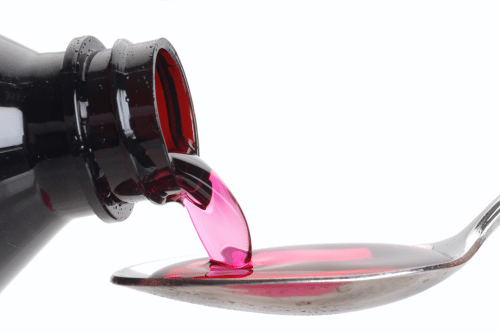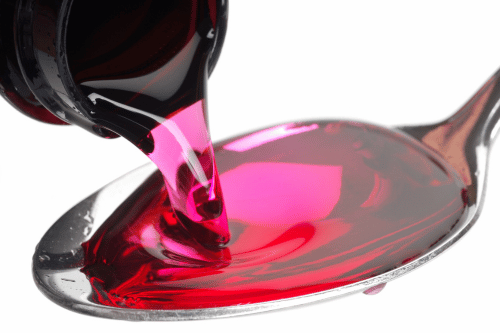Effects of Lean: The Deadly Impact of This Dangerous Drink
Lean, also referred to as “purple drank,” “sizzurp,” or “dirty sprite,” is a powerful and dangerous concoction made from prescription cough syrup mixed with soda and often flavored with candy. When individuals drink lean, they consume a mixture typically made of codeine and promethazine mixed with soda, which can lead to sedation, euphoria, and severe health risks such as respiratory depression and overdose. It gained mainstream popularity through the hip hop music scene, but its recreational use has spiraled into a widespread addiction problem. While its effects might seem harmless at first, the effects of lean are far from safe, leading to life-threatening consequences for the user.
In this article, we will delve deeper into the effects of lean, like why is lean dangerous? The main reason Lean is dangerous is that it is highly addictive. highlighting its addictive nature, its mental and physical health risks, and why professional treatment is essential for overcoming lean addiction.
What is Lean? Understanding Prescription Cough Syrup

Lean, also known as purple drank or dirty sprite, is a lean drink typically made using codeine-based cough syrup. The active ingredients, codeine and promethazine, are opioids and antihistamines that depress the central nervous system. When combined with soda and hard candy, lean produces a high that makes users feel relaxed, euphoric, and detached from reality. This experience is what attracts many users, particularly young adults, who may not fully understand the serious health risks involved in consuming this drug.
Codeine in the cough syrup acts as a pain reliever, while promethazine reduces allergic reactions and nausea. However, when abused together in high doses, they can cause sedation and slow down critical bodily functions like breathing and heart rate. The result? Users face the risk of respiratory depression, which can be fatal.
Ingredients of Lean
Lean is a concoction made from a combination of ingredients, each contributing to its dangerous effects. The primary component is prescription cough syrup, which contains codeine and promethazine. Codeine is an opioid used as a cough suppressant and pain reliever, while promethazine is an antihistamine that can cause sedation and impair motor skills. Together, these substances depress the central nervous system, leading to the euphoric and relaxed feeling that users seek.
The cough syrup is typically mixed with soda, a carbonated beverage that dilutes the syrup but does not mitigate its harmful effects. Hard candy is often added to enhance the flavor, making the drink more palatable. In some cases, alcohol is included, significantly increasing the risk of overdose and other severe health problems. The exact ingredients and their proportions can vary, but the danger remains consistent regardless of the recipe.
Types and Variants of Lean

Lean comes in several types and variants, each with its own set of risks. The most well-known variant is purple drank, made with grape-flavored soda, giving it a distinctive purple color. This type is popularized in the hip hop music scene and is often glamorized despite its dangers.
Another common variant is sizzurp, which combines codeine and promethazine. This mixture is particularly potent and can lead to severe respiratory depression. Dirty Sprite is another type, made by mixing codeine with soda, often without the addition of candy. Each of these variants poses significant health risks, but some are more dangerous than others.
A particularly hazardous variant is fentanyl lean, which includes fentanyl, a powerful synthetic opioid. Fentanyl is much stronger than codeine and significantly increases the potency and danger of the drink. This variant is extremely dangerous and has a high potential for overdose and death.
Immediate and Short-Term Effects of Lean
At first glance, the side effects of lean might not seem too alarming. Users often report feeling lightheaded, drowsy, or experiencing a sense of well-being. The euphoria that lean provides is the primary reason people continue to use it recreationally. However, beneath these seemingly mild effects lies a cocktail of dangerous consequences.
It is important to recognize that consuming lean can lead to drug abuse, particularly when it is made from prescription cough syrup containing codeine. The addictive properties of lean and the risks of combining it with other intoxicants can exacerbate health issues and lead to substance abuse.
Some common short-term effects of drinking lean include:
Drowsiness and sedation
Slurred speech
Poor coordination and impaired motor skills
Nausea and vomiting
Constipation and urinary tract infections
Respiratory depression, leading to difficulty breathing
Slow or irregular heart rate
As the user continues to consume lean, the risk of lean abuse increases, as they may start taking higher doses to achieve the same effects. The danger escalates quickly as the body becomes accustomed to the drug, making it easier to overdose.
Long-Term Health Risks of Lean Abuse
The long-term effects of lean are far more concerning than the short-term symptoms. The chronic misuse of this drug can lead to severe health problems that affect various systems in the body. Among the many serious health problems caused by lean, the most notable include respiratory depression, liver damage, and kidney failure. These effects are often irreversible and can be life-threatening.
Physical Health Deterioration
Lean’s addictive properties, primarily due to the opioid drugs in cough syrup, make it easy for users to develop physical dependence. Over time, this can manifest as cough syrup abuse, where users increase their dosage or frequency to maintain the high. This abuse severely damages the liver, kidneys, and other vital organs, often resulting in serious health issues like:
Liver damage due to the high levels of acetaminophen present in many cough syrups
Kidney failure from prolonged use
High blood pressure and heart complications
Severe constipation, leading to gastrointestinal issues
Moreover, lean’s effects on the central nervous system can lead to impaired motor skills, chronic fatigue, and slowed reflexes, putting users at risk of accidents and injuries. Respiratory depression is one of the most dangerous side effects, as it can slow breathing to dangerously low levels, often resulting in death if medical attention isn’t promptly received.
Mental Health Consequences
While lean is known for its physical dangers, its mental health impact is equally concerning. Users may experience mood swings, depression, and anxiety after prolonged use. As the brain becomes dependent on the drug for feelings of pleasure, individuals may struggle with motivation, concentration, and emotional regulation. In some cases, lean addiction can trigger or worsen existing mental health conditions, such as anxiety or depression.
The misuse of lean can also affect relationships, social life, and career, as the drug’s hold on the user deepens. For young people and young adults, these effects can be particularly devastating, hindering emotional and cognitive development.
Addiction and Dependency: Why Lean is Highly Addictive

Lean is a highly addictive substance, primarily because of the opioid drugs it contains. The codeine in lean has a powerful effect on the brain’s reward system, leading to a cycle of substance abuse that can be difficult to break. Over time, users develop a tolerance to the drug, meaning they need to consume more to experience the same effects, ultimately leading to dependency.
The withdrawal symptoms from lean are often severe and can include:
Intense cravings
Anxiety and irritability
Muscle aches and pains
Insomnia
Nausea and vomiting
These symptoms make it incredibly hard for individuals to quit on their own. Lean addiction treatment often requires medical supervision to manage withdrawal symptoms, along with psychological therapy to address the underlying causes of the addiction.
Prevention and Education: Proactive Measures Against Lean
Preventing lean abuse, especially among young adults, requires a combination of education and proactive measures. Educating young people about the dangers of lean is crucial. They need to understand the risks of lean addiction, including the potential for overdose, severe health problems, and the impact on their mental health.
Encouraging responsible behavior is another key strategy. Young adults should be guided to make informed choices and avoid behaviors that increase the risk of lean abuse. Monitoring their behavior for signs of substance abuse, such as changes in mood or the presence of lean-related paraphernalia, can help in early detection and intervention.
Providing support and resources for those struggling with lean addiction is essential. This includes access to substance abuse treatment programs and promoting healthy alternatives to lean. Activities like sports, music, or other hobbies can offer a sense of relaxation and enjoyment without the associated risks of drinking lean.
By taking these proactive measures, we can reduce the prevalence of lean abuse and create a healthier, safer environment for young adults.
Seeking Help: The Importance of Professional Treatment
Breaking free from lean addiction is challenging, but not impossible. Professional substance abuse treatment is crucial for individuals looking to overcome their dependence on lean. At Revival Mental Health, we offer specialized treatment programs designed to address both the physical and psychological aspects of addiction.
Our treatment plans include:
Detoxification under medical supervision to safely remove the drug from the body
Individual and group therapy, such as talk therapy, to address the emotional and psychological triggers for substance abuse
Education on the dangers of cough syrup abuse and how to prevent relapse
Support for rebuilding personal and social relationships affected by addiction
Conclusion: Take Action Against the Effects of Lean
The effects of lean are far-reaching and dangerous, from short-term side effects like drowsiness and nausea to long-term consequences like respiratory depression, organ damage, and mental health deterioration. Lean may appear harmless because of its sweet taste and casual use in popular culture, but the reality is that this drug concoction can cause irreversible harm.
If you or someone you know is struggling with lean addiction, it’s important to seek help immediately. At Revival Mental Health, our team of experts is ready to guide you through recovery with comprehensive treatment options tailored to your unique needs.
Don’t let the dangerous effects of lean destroy your health and your life—reach out for help today.





